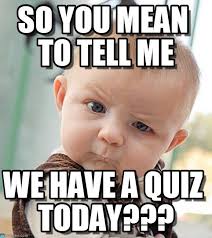No parents, "the Crucible" is not teaching your child witchcraft
I have devised a theory that an English teacher cannot consider herself a true professional until a parent questions her reading list.
The first time a parent questioned my reading list was my third year of teaching, when a very religiously-conservative mother down in Texas wanted her daughter to be exempt from reading The Crucible in junior English. I was so taken aback that my blog response got a bit snarky and defensive - to read it in full, click here. I was on maternity leave at that time and didn't even know the student involved, so I caved and gave my substitute alternate work for that girl.
Since then, I've gotten parent questions about other assigned reading, including John Green's The Fault in Our Stars, Bel Canto by Ann Patchett, and Romeo and Juliet (to be fair, this play is WAY to risque for freshmen).
This year I received another parent email about Arthur Miller's infamous play, so this blog post is my response that I can file away for all future parent emails. As with the first, the concern is reading about witchcraft, especially in a Christian school.
I should not have been snarky those years ago; rather than writing off questioning parents as ignorant and ill-read, I should be articulating my reasoning for my reading list as well as appreciating parents' involvement in their children's education. We teachers have such little time with these students to give them the tools they need to be successful in today's world, and I absolutely believe there is a canon of literature our students should be exposed to (I joke with my students that Family Guy is funnier if you're well read, but it is actually true). I should not be assigning texts which I cannot justify. My initial reasoning for that parent four years ago was that The Crucible was in the Texas English 11 textbook. I now realize that is a terrible reason for choosing to assign kids something, and my own rationale must be better articulated.
_______________________________
Dear student,
The first time a parent questioned my reading list was my third year of teaching, when a very religiously-conservative mother down in Texas wanted her daughter to be exempt from reading The Crucible in junior English. I was so taken aback that my blog response got a bit snarky and defensive - to read it in full, click here. I was on maternity leave at that time and didn't even know the student involved, so I caved and gave my substitute alternate work for that girl.
Since then, I've gotten parent questions about other assigned reading, including John Green's The Fault in Our Stars, Bel Canto by Ann Patchett, and Romeo and Juliet (to be fair, this play is WAY to risque for freshmen).
 |
| Source: Wikipedia |
I should not have been snarky those years ago; rather than writing off questioning parents as ignorant and ill-read, I should be articulating my reasoning for my reading list as well as appreciating parents' involvement in their children's education. We teachers have such little time with these students to give them the tools they need to be successful in today's world, and I absolutely believe there is a canon of literature our students should be exposed to (I joke with my students that Family Guy is funnier if you're well read, but it is actually true). I should not be assigning texts which I cannot justify. My initial reasoning for that parent four years ago was that The Crucible was in the Texas English 11 textbook. I now realize that is a terrible reason for choosing to assign kids something, and my own rationale must be better articulated.
_______________________________
Dear student,
Please thank your mother for her involvement in your education! Thank you so much for your question. In fact, I have gotten this question every year I've taught The Crucible. I will do my best to explain my rationale for assigning this text.
First, a quick explanation about the Salem Witch Trials as a historical event. There is no evidence there was any witchcraft or magic of any kind that occurred during this time in American history. It was a sad period filled with unfounded legal accusations, a desire to explain tragedies and bad harvest, revenge, and a paranoid Puritanical culture that resulted in the deaths of 19 innocent civilians. The miscarriage of justice inspired some of the legal rights of citizens eventually written into our Constitution.
Let me be clear: there were no actual witches or magic in the Salem witch trials or anywhere in The Crucible - only characters that either believed or wished to believe it so. The Smithsonian has a brief history on the trials here if you'd like to learn more. Miller did meticulous research for his play, and aside from the relationship of Abigail Williams and John Proctor, nearly every other part of the play is true and some quotes are drawn directly from letters and court documents from that decade.
Along this vein, I use The Crucible to introduce various Puritan beliefs that link up to other readings for my course, including "Devil and Tom Walker" by Washington Irving, "Sinners in the Hands of an Angry God" by Jonathan Edwards, "A Model of Christian Charity" by John Winthrop, and The Scarlet Letter by Nathaniel Hawthorne.
Let me be clear: there were no actual witches or magic in the Salem witch trials or anywhere in The Crucible - only characters that either believed or wished to believe it so. The Smithsonian has a brief history on the trials here if you'd like to learn more. Miller did meticulous research for his play, and aside from the relationship of Abigail Williams and John Proctor, nearly every other part of the play is true and some quotes are drawn directly from letters and court documents from that decade.
Along this vein, I use The Crucible to introduce various Puritan beliefs that link up to other readings for my course, including "Devil and Tom Walker" by Washington Irving, "Sinners in the Hands of an Angry God" by Jonathan Edwards, "A Model of Christian Charity" by John Winthrop, and The Scarlet Letter by Nathaniel Hawthorne.
Second, The Crucible by Pulitzer Prize-winning playwright Arthur Miller hits some crucial points for AP English. I use it to introduce fallacies - modes of argument that appear legitimate but are actually false. In learning how to structure arguments, it's important to see how people use argument structures poorly and to their own ends. Fallacies such as false dilemma, bandwagon, straw man, and other logical fallacies are used by the prosecutors in the legal proceedings to convince others of the "guilt" of those on trial for witchcraft. I also use the play to teach inference, indirect characterization, author purpose, and deductive reasoning. I sometimes have students who have never read a play before, so the basics of the drama genre and dramatic irony are also covered.
Third, The Crucible is an allegory written during the Red Scare era of McCarthyism in American history. Thus, one play hits two major points in American history covered during your junior year in U.S. History class. An allegory is a story that has symbolic meaning of another event or narrative besides its own. McCarthyism was a scary time in American history where people were prejudged without considering any background, and those in power delivered verdicts of guilt without evidence or due process of law. Many Americans (including Arthur Miller) were blacklisted and had their lives ruined because someone accused them of Communist sympathies, which rarely had any truth to them. This was, as PBS's American Masters series notes, "one of the most shameful moments in modern U.S. history."
Finally, particularly in today's fear-driven, social media-run society, we often make judgements and slander reputations without any thought to repercussions and actual truth-gathering. In many ways I believe our culture has lost sight of the lessons learned from both the Salem Witch Trials and McCarthyism, and it is important to teach your generation not to repeat the past. The characters in Salem also misused Biblical teachings to harm one another, and I want desperately to teach my students NOT to do such things. This is why I assign this text even in a Christian school.
I hope this is a reasonable explanation for teaching The Crucible. It has been on American Literature reading lists for decades and there are plenty of other resources about this text available if you or your mother would like to do some more digging. Please let me know if I can help in any other way!
Blessings,
Mrs. H
Mrs. H





Comments
Post a Comment